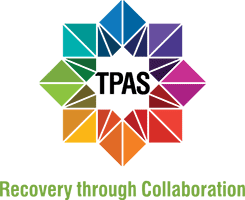By CooperRiis at Asheville Care Coordinator, Laura Eshelman, MSW
Many mental health professionals regard dialectical behavior therapy (DBT) as one of the most effective modalities for treating a wide range of mental health challenges, particularly for those who struggle with the regulation of intense emotions. At CooperRiis, over a dozen therapists within the four programs are certified and/or proficient in using DBT with residents. DBT is particularly useful for diagnoses such as borderline personality and major depressive disorders. Over time it has been modified for conditions such as depression, PTSD, and substance use disorder. But what about neurodiverse populations?
What is DBT?
DBT was created in the 1990s by psychologist Dr. Marsha Linehan, who revealed late in her career that she most likely fit the criteria for borderline personality disorder after long periods of psychiatric hospitalizations as an adolescent. Its approach, in a nutshell, is an “integration of opposites” with an end goal for individuals to have deeper self-awareness of thoughts, emotions, and coping skills to manage distressful situations while building meaningful lives. (Formerly known as the Linehan Institute, you can visit the Behavioral Tech Institute here.) Yet, the benefits of DBT for people who are on the autism spectrum, as well as for people who manage ADHD, were unclear for years. The National Institute of Health states that there are relatively few evidence-based treatments designed to help adults who are on the autism spectrum. In 2021, the NIH released a study (https://pubmed.ncbi.nlm.nih.gov/34553682/) examining the effectiveness of DBT for some symptoms of adult autism. Similarly, DBT’s emphasis on skills like mindfulness and emotional regulation are often just as helpful as more frequently prescribed CBT treatments for people with ADHD.
There are, however, particular tweaks and strategies that DBT trained clinicians may employ to make this modality more accessible for neurodiverse clients. In some workbooks, for instance, sections about interpersonal effectiveness have been removed and replaced with tools for sensory management. The reason for this is twofold; for one, some social skills that may come naturally to neurotypical people, such as eye contact, can be overwhelming for neurodivergent people. Additionally, building sensory management skills may actually help people improve interpersonal effectiveness skills, which may be impeded by low sensory tolerances, particularly in shared social settings.
What are some of DBT’s “new tricks” for neurodiversity?
Workbook sections on distress tolerance also include additional strategies and techniques for avoiding autistic “meltdowns” (for those unfamiliar with the term, this is a term understood by clinicians and people on the spectrum for the experience of an involuntary sensory overload, and/or a physical dysregulated state). Some also include self-affirming statements for neurodivergent individuals, such as “My brain works exactly the way it was supposed to,” and “I will not hide my neurodivergent traits to make other people comfortable.” Furthermore, this modified style of DBT also adds language and terminology to describe common parts of the neurodivergent experience, such as alexithymia, or difficulty describing emotions, and ‘SpIns’, or “specialized interests”.
Over the past year, CooperRiis has implemented multiple initiatives to create a more welcoming and inclusive environment for neurodivergent residents. In addition to modifications to physical spaces to accommodate sensory needs, residents have led book clubs about neurodivergence, worked with occupational therapists who are knowledgeable about neurodiverse needs, and some therapists have offered the newer DBT workbooks that speak to these needs. These are just a few initial steps toward expanding accessibility and honoring neurodivergence as a difference rather than a deficit, with its own set of unique strengths.









